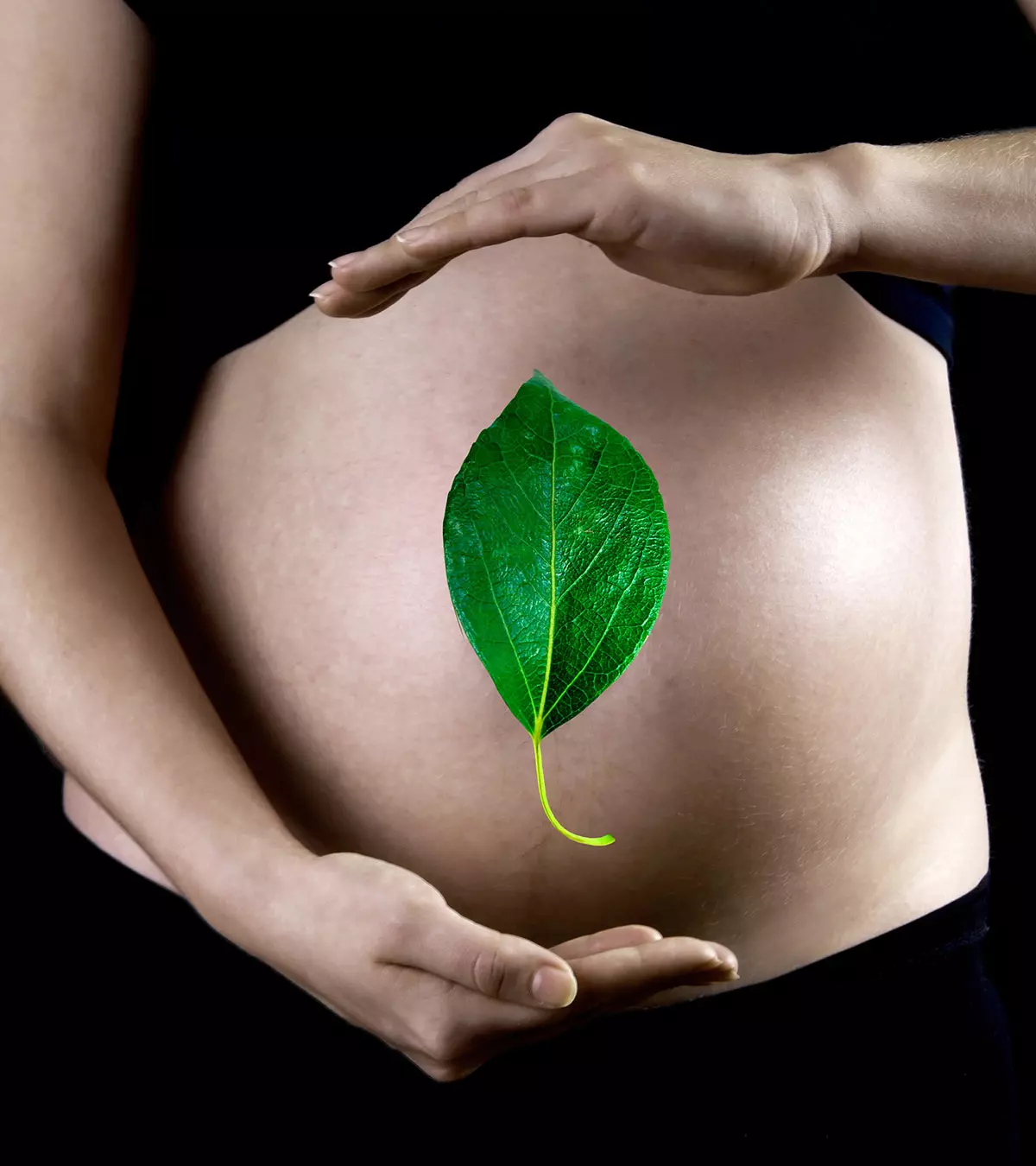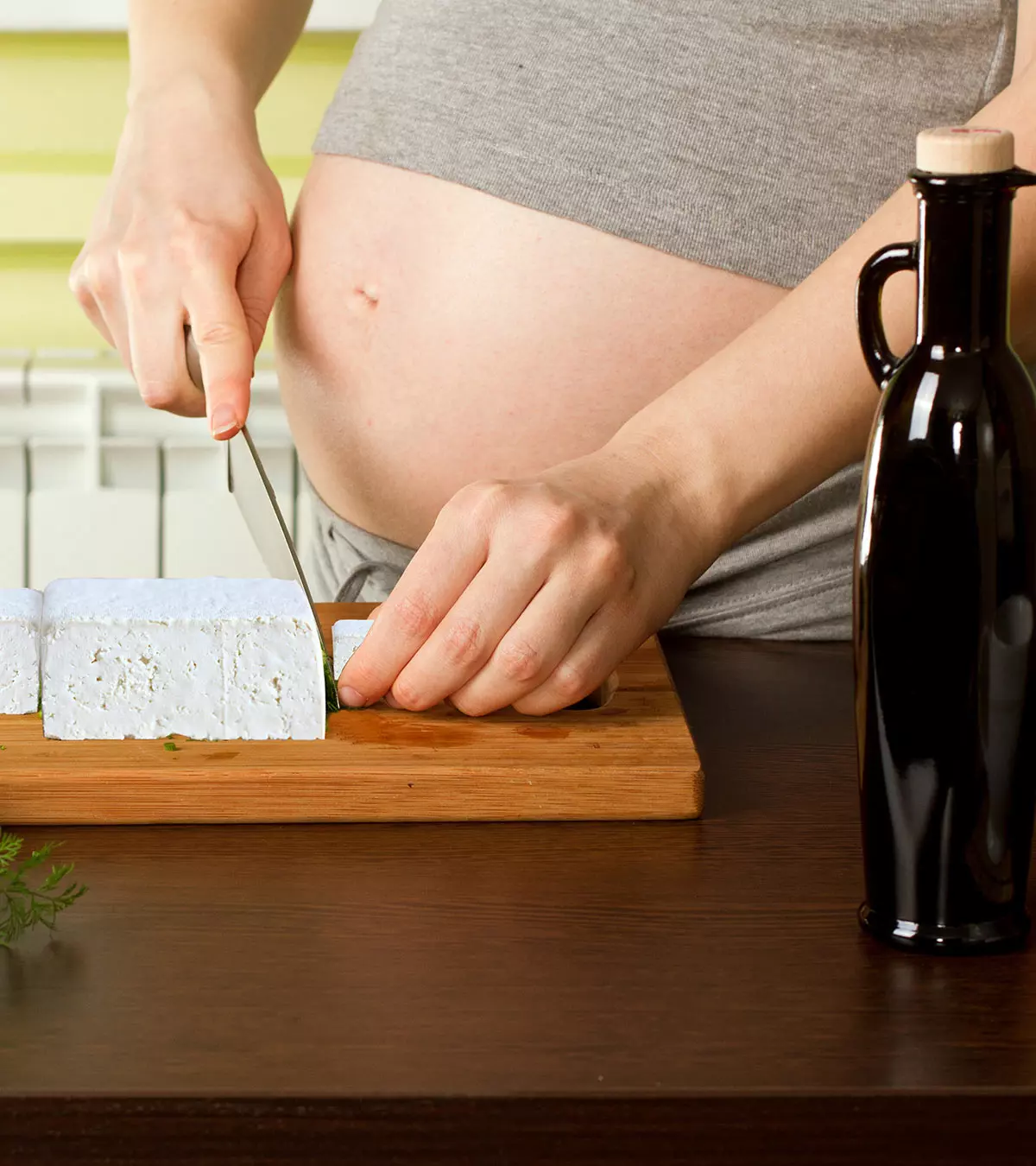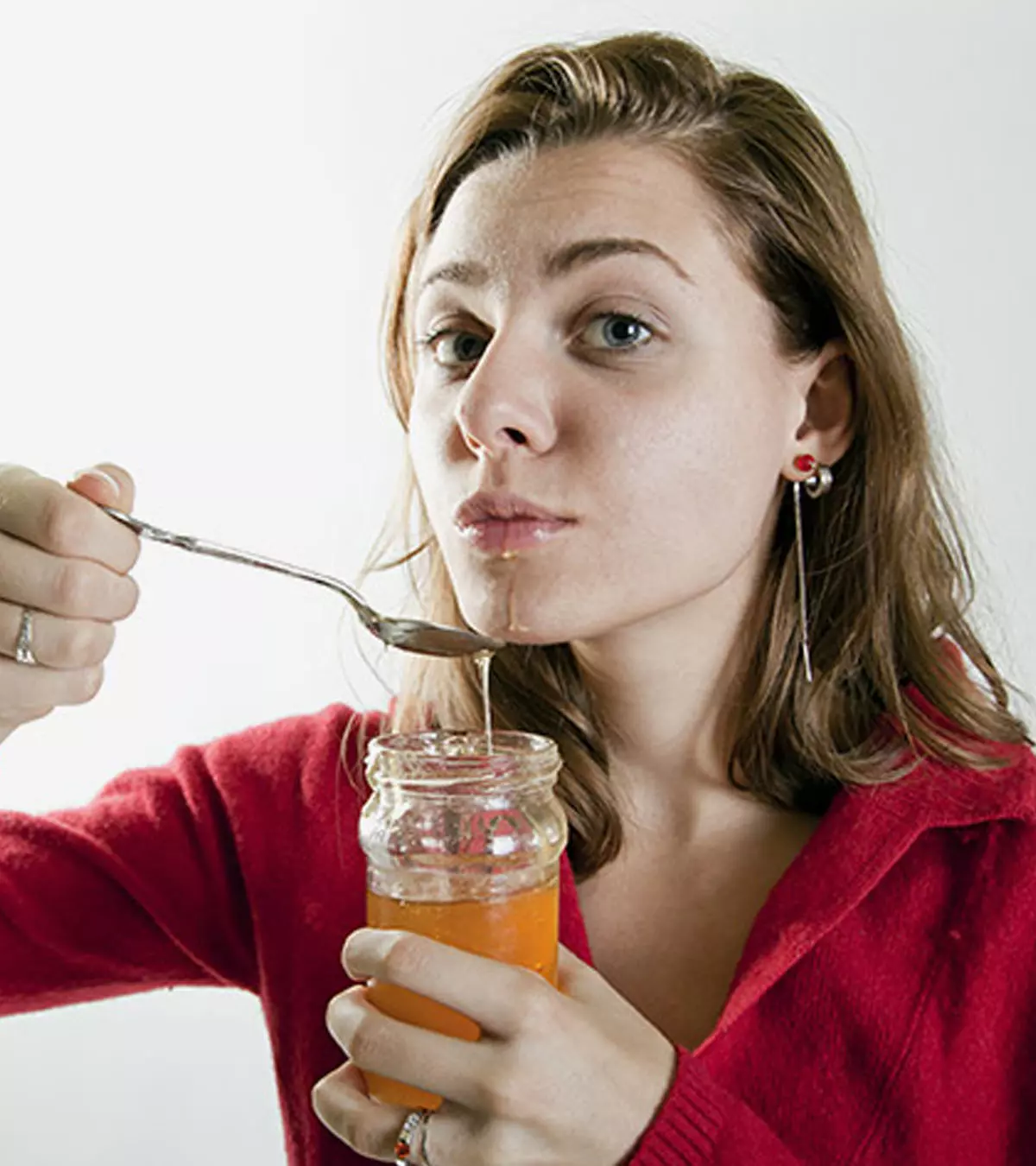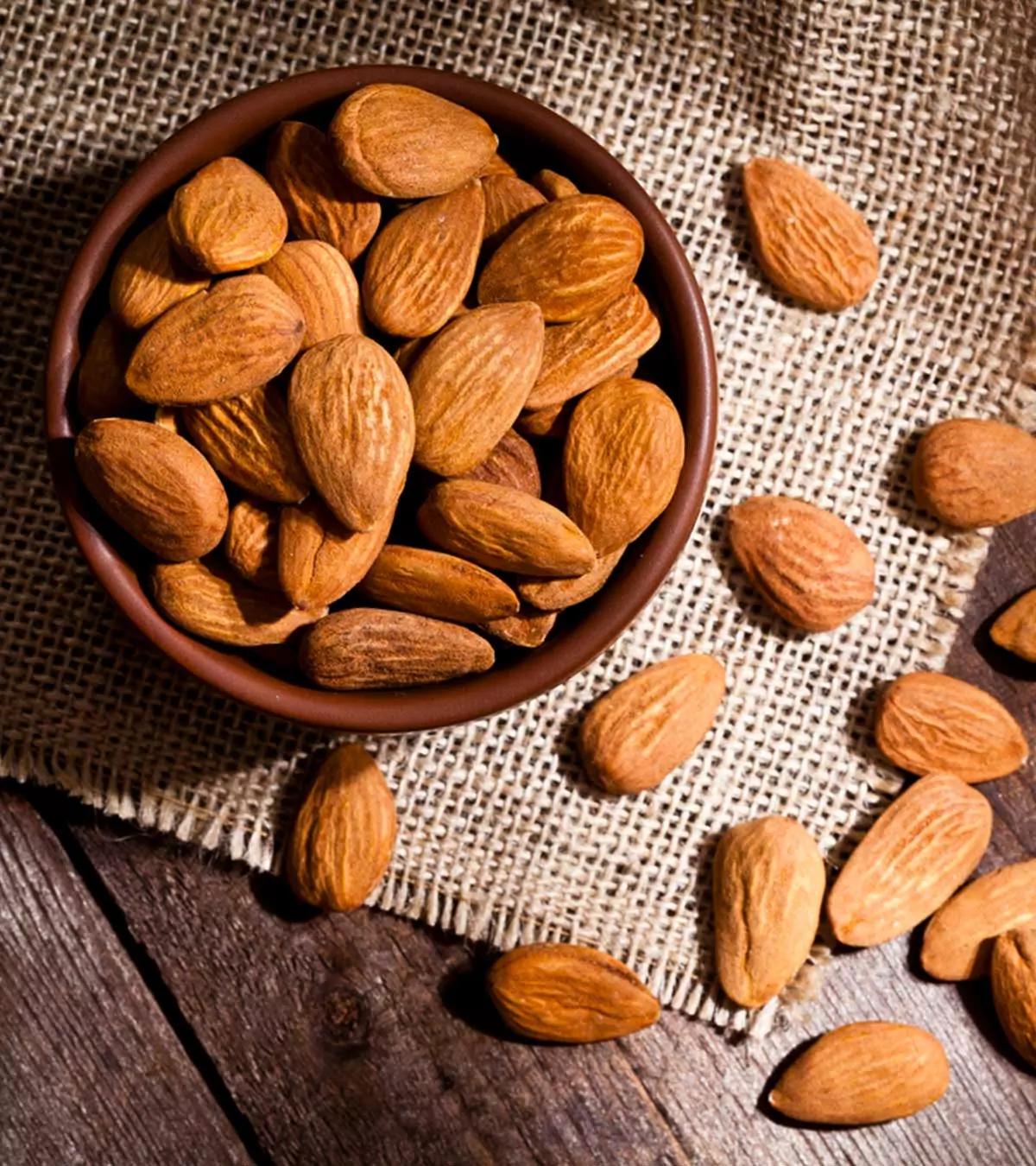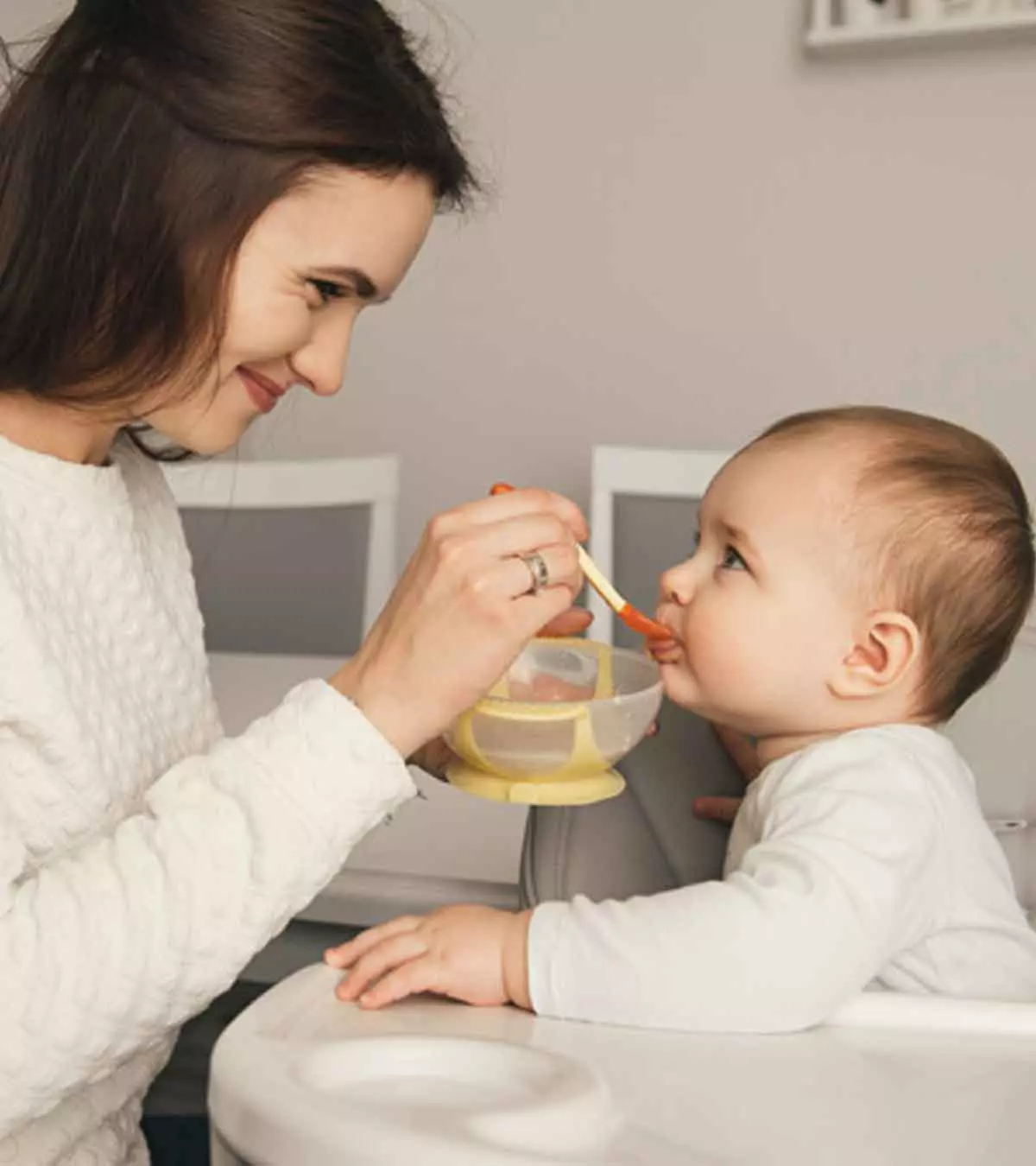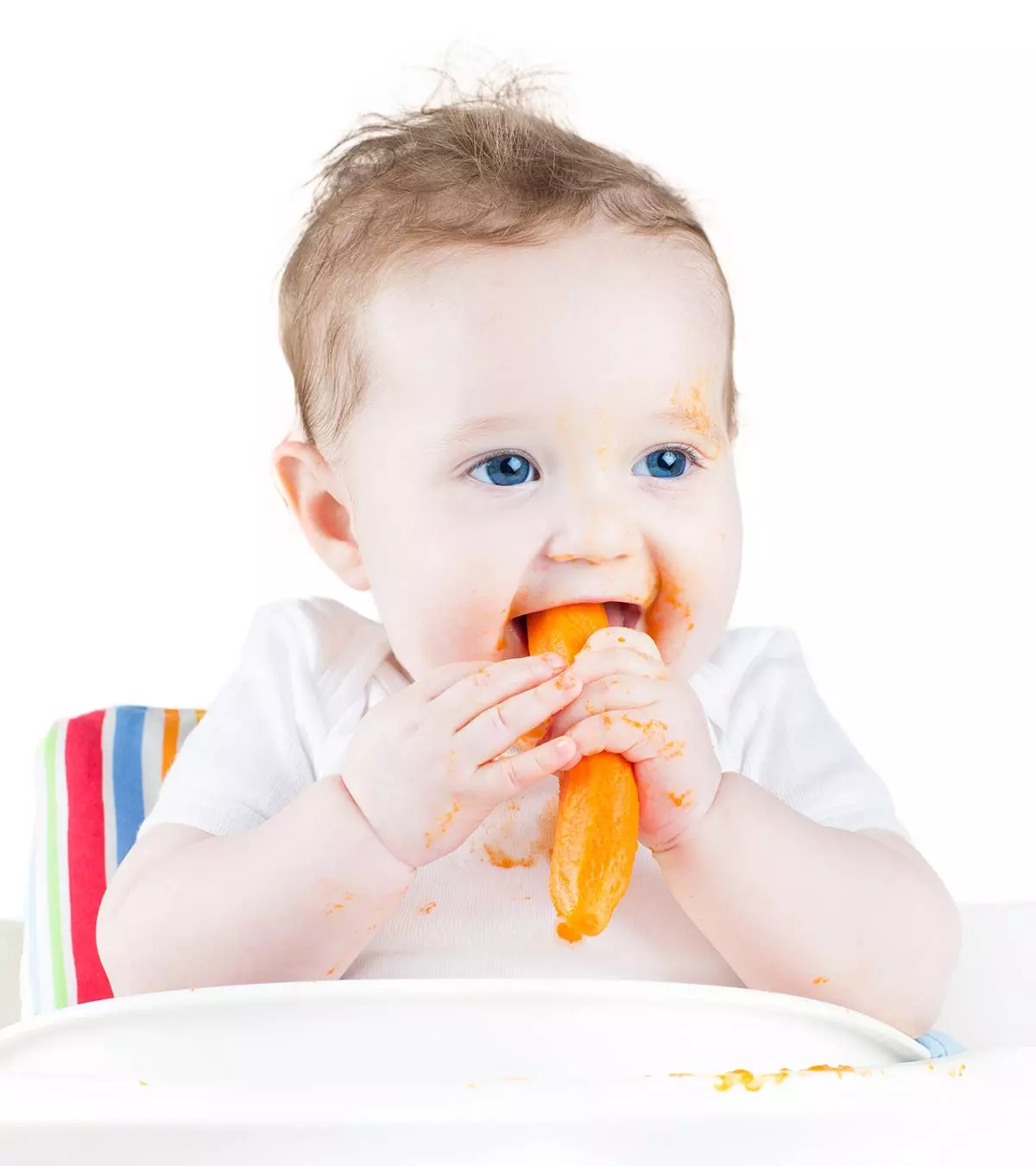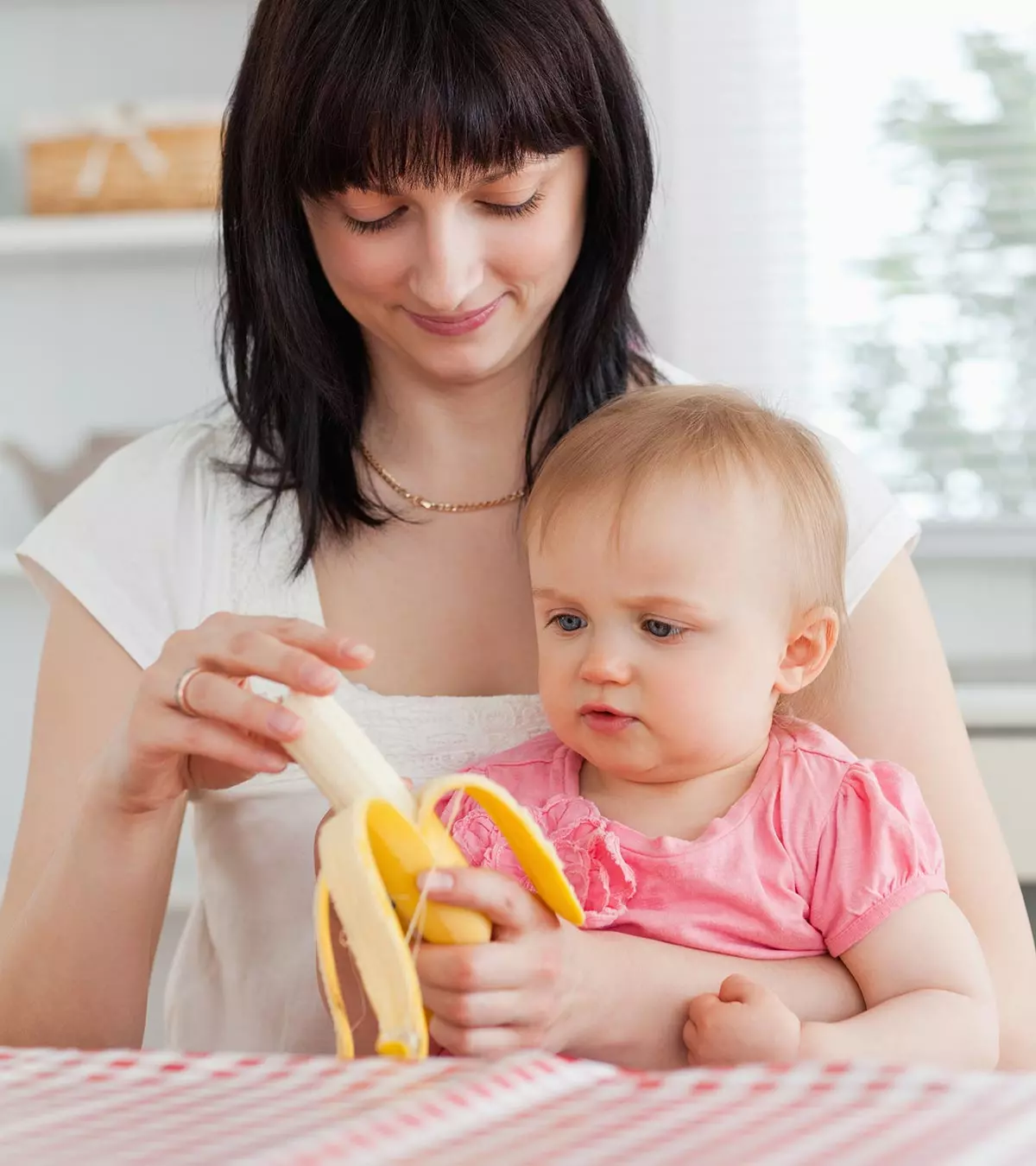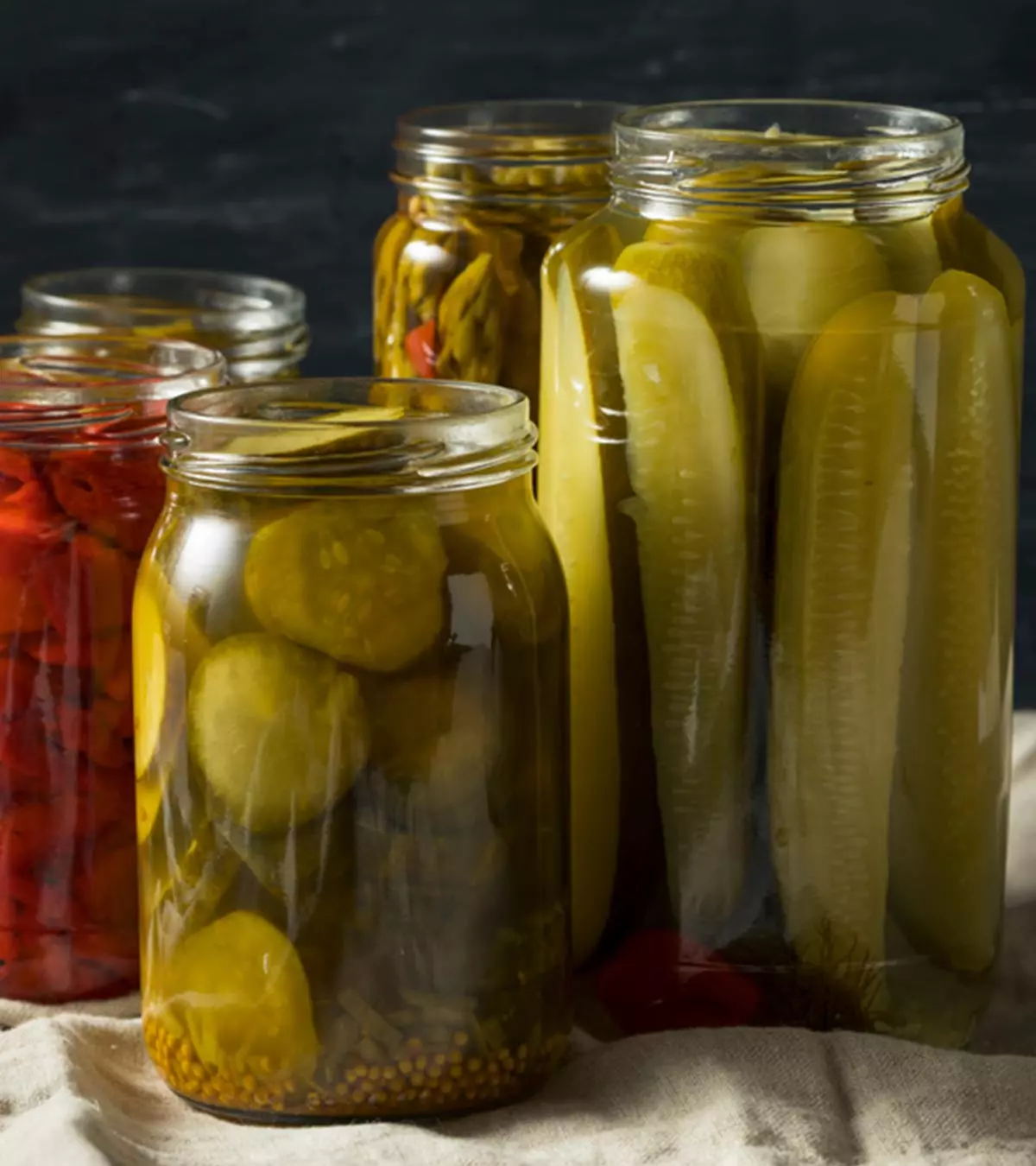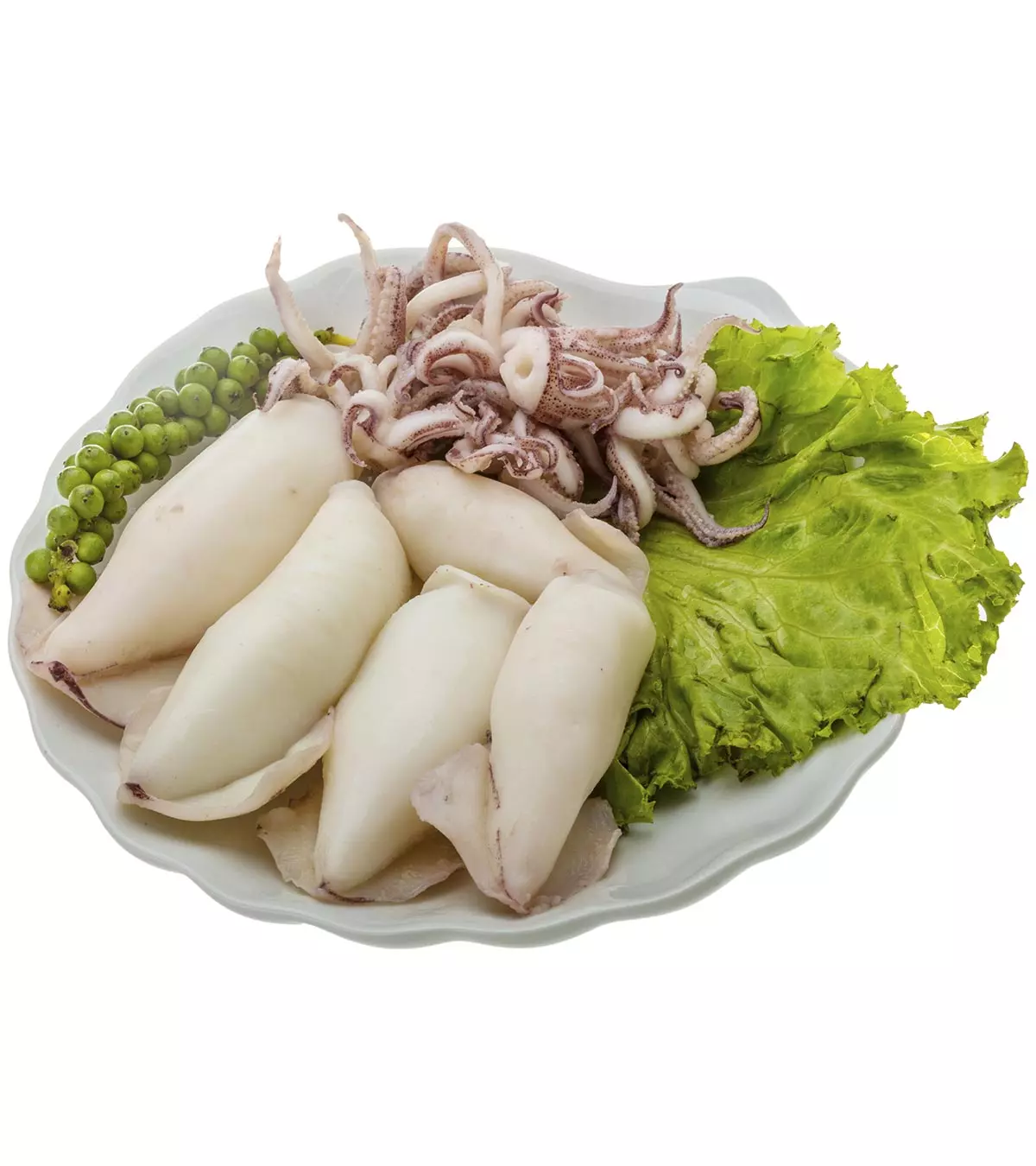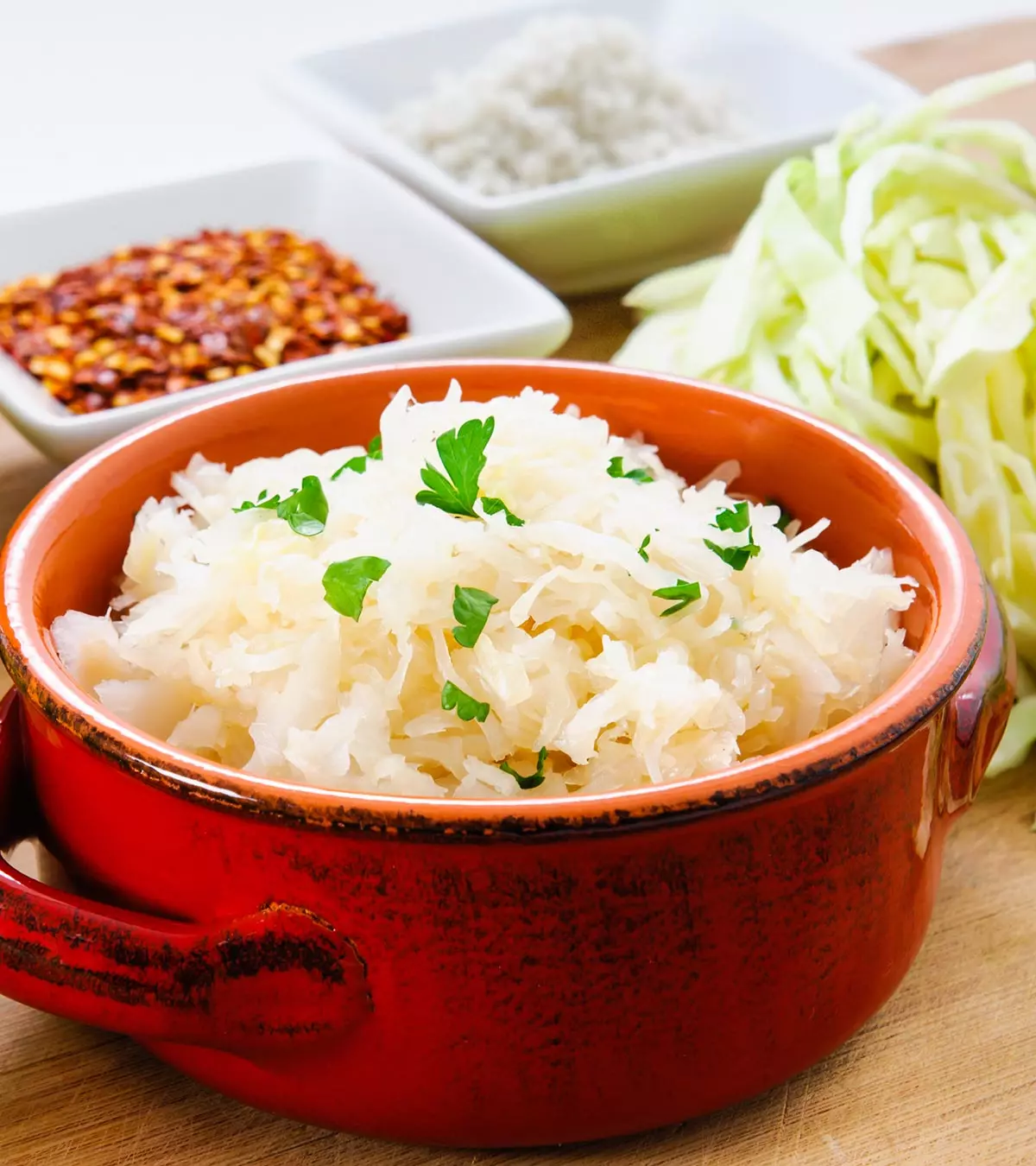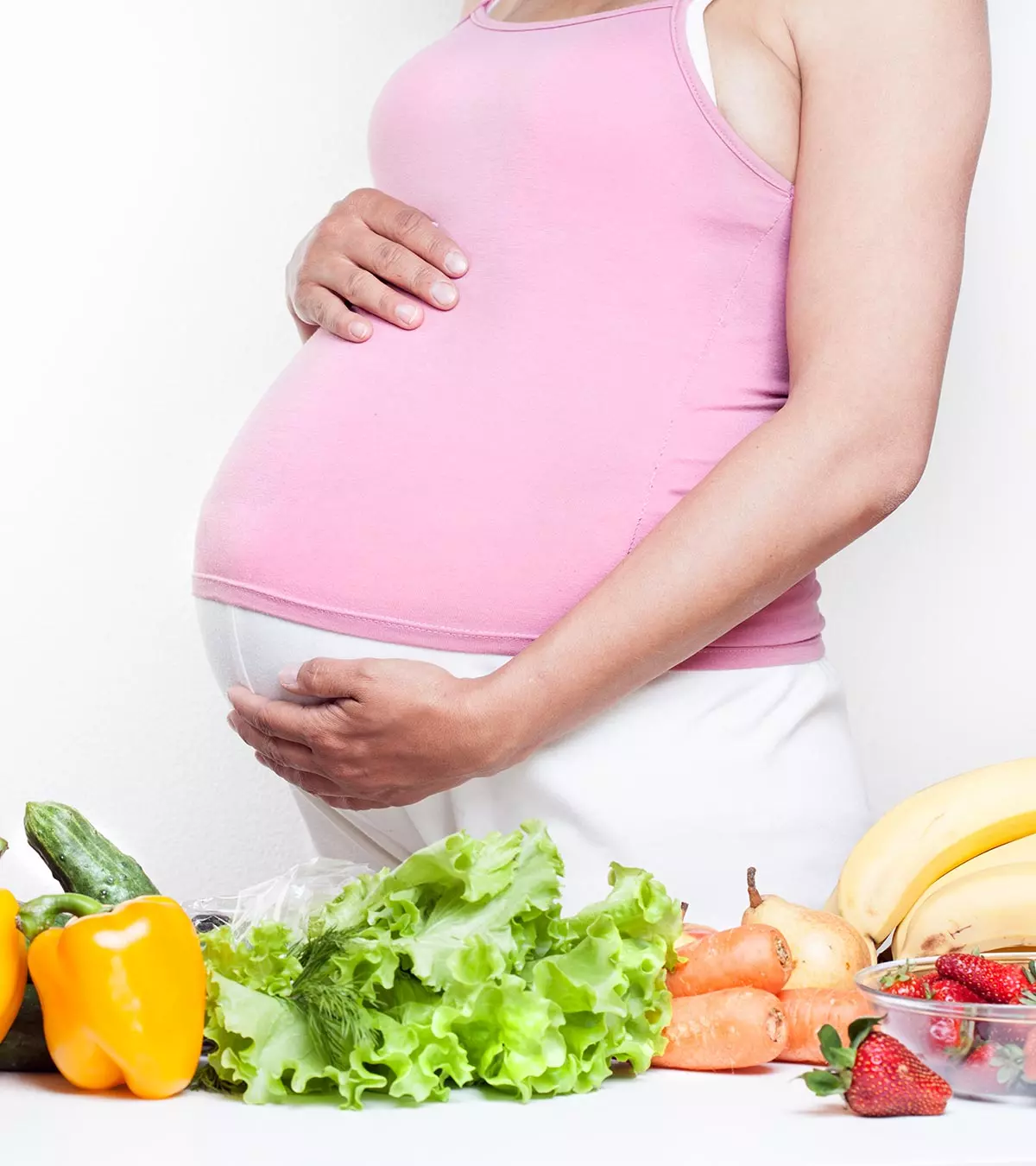
Image: Shutterstock
Detoxification comprises following certain methods and procedures to eliminate toxins from the body. While it is healthy to detox your body occasionally, you may wonder if it is safe to detox during pregnancy.
You should be careful about anything you consume or apply externally during pregnancy, as they may directly or indirectly affect the growing fetus. It is crucial to recognize that the body has natural detoxification systems, which should not be disrupted during pregnancy. Understanding safe practices and the risks involved is essential for mother and baby. Since detox techniques generally involve over-the-counter (OTC) products, they may or may not be safe for pregnant women.
Keep reading this post to learn more about whether it is safe to undergo a detox when pregnant, the types of detox programs, the risks associated with it, and how to do a detox safely.
Key Pointers
- Detoxing is generally not recommended for pregnant women.
- The US Food and Drug Administration (FDA) has confirmed that detoxes are not always practical.
- Herbs such as parsley and cilantro can be hazardous to the fetus during early pregnancy.
- Detoxing can result in dehydration, elevated levels of Vitamin C, and lack of proper nutrition.
- A few lifestyle modifications, a nutritious diet, and regular exercise can aid in eliminating toxins from the body.
Detox While Pregnant – A Brief
A detox refers to a diet that uses different nutritional guidelines and herbal supplements to remove toxins from the organs and tissues (1). Eliminating toxins from your body may seem like a good idea, but in reality it is not. During pregnancy, a woman needs to focus on making a new life, not on splitting the energy between a detox and creating a new life. Continue reading to know more about detox during pregnancy.
Types Of Detox Programs
There are a wide variety of detoxification programs. The common ones include (2):
1. Dietary detox
Dietary detox involves eating certain foods and juice for a particular set period.
 Caution
Caution2. Supplements

Detox based on supplements requires taking laxativesiA type of drug that helps relieve constipation by improving bowel movements. to stimulate bowel movements and diureticsiA type of drug that increases the production and flow of urine. to encourage urination.
3. Detox treatments
Treatments like spa skin wraps and colon irrigation address a specific organ for removing toxins from the body.
 Did you know?
Did you know?Risks Associated With Detox During Pregnancy
1. Use of herbs

Some detox and cleanse programs include herbs, herbal remedies, and herbal supplements as part of their diet. Herbs and chemicals may not be safe for your developing fetus. Also, herbs like cilantro and parsley increase the risk of miscarriage in the early stages of pregnancy. Hence, before using any herb or such natural remedies, make sure you seek your doctor’s advice. Detox while pregnant may not be safe after all (3).
2. Dehydration
Colon irrigation increases the amount of sweating, urination, and bowel movement. It may be fine under normal circumstances, but not during pregnancy. These things, combined with an increased need for fluids, could lead to dehydration. Dehydration can put you and your child in a dangerous position. It can also cause electrolyte imbalances.
3. Increases the levels of vitamin c in the body
Some detox requires taking high amounts of vitamin C, which can halt the body from making progesteroneiA steroid hormone that plays an important role in the regulation of the menstrual cycle and early stages of pregnancy. , a vital hormone for pregnant women (4).
4. Efficacy
The US Food and Drug Administration (US FDA) has proven that detoxes may not always be effective. In addition to being potentially dangerous, detoxes are unlikely to remove toxins any better than the body’s excretory system (1).
5. Lack of nutrition
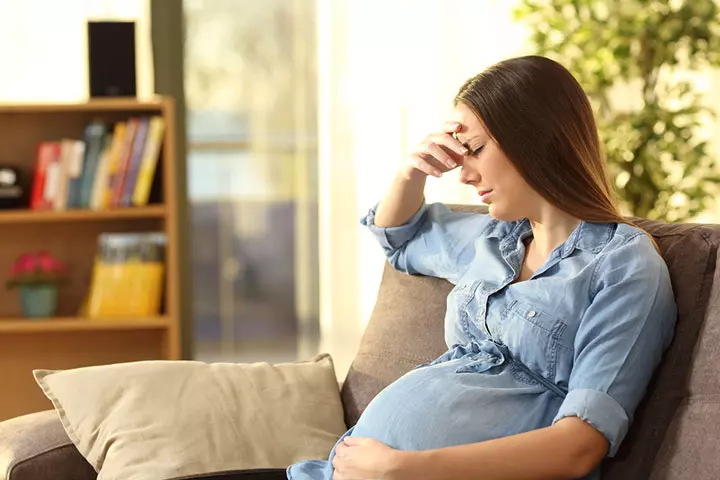
Dietary detoxes involve eating healthy fruits and vegetables, so you may think that it is safe. However, when you remove one or more food groups from your diet, both you and your child are at risk of missing essential nutrients from that specific food group. Hence, a detox meal plan is a strict no at this time.
 Point to consider
Point to considerHow To Do A Detox Safely?

Even though a full-blown detox diet is not ideal when you are expecting, you can change your eating habits for the better without putting your baby or yourself at risk. Eating healthy meals during pregnancy and exercising can help remove toxins safely and effectively while increasing holistic wellness. Here are some safe ways to do detox (5):
- Drink eight glasses of water every day to flush out the toxins from the body through urine, feces, and sweat. Follow a high fiber diet to keep your colon clean. Make sure that you exercise 30 minutes a day to circulate oxygen and nutrients through your body. Eat healthy foods like fruits, vegetables, fat-free dairy, whole grain and healthy fats. Try to purchase organic foods.
- Avoid high mercury fishes, deli meats, nicotine, tobacco, drugs, alcohol, and allergic foods that may cause harm to the fetus and increase the presence of toxins in the body.
- Consider taking supplements under medical guidance. According to the Bureau of Substance Addiction Services, those with a prenatal history of alcohol or substance dependence and undergoing detox during pregnancy require thiamine along with folic acid supplements (6).
- Ensure you get adequate amino acids from pregnancy-safe lean proteins to support both the nutrition requirement and the natural detox mechanism. You may also include yogurt and fermented foods such as kimchi and sauerkraut. According to the American Pregnancy Association (APA), the microbes present in the different fermented foods will help cleanse the gut and promote the growth of a healthy gut microbiome (7).
- The best time to do a detox is one year before pregnancy. This way, you will have ample time to rebuild yourself with a nutrient dense diet. You can also consider doing a detox after breastfeeding.
- Always consult a healthcare provider before starting any detox methods to ensure they are safe for you and your baby. Professional guidance can help you navigate the complexities of detoxification during pregnancy.
Furthermore, for those struggling with substance use, seeking a medically supervised detox program is vital. These programs provide the necessary support and medical care to ensure the mother’s and baby’s health and safety.
Frequently Asked Questions
1. Can I detox during ovulation?
Unless directed otherwise by your doctor, you can safely detox under expert guidance during ovulationiA stage in the female reproductive process when a mature egg is released into a fallopian tube from the ovary. . Detoxification can help remove harmful chemicals from your body that could affect your overall health and fertility over time.
2. Does detox affect early pregnancy?
Detoxification involves using herbs and supplements that can raise several risks for your and your baby’s health. It is particularly crucial during the early pregnancy when the baby’s major organs develop. Thus, experts generally are against detox during pregnancy.
3. What are the best foods to eat during a pregnancy detox?
Fresh fruit and vegetables, whole grains, lean proteins like poultry or fish, legumes, nuts, and seeds are some nutritious foods to eat during pregnancy. You can eat these fruits and veggies during pregnancy detox. Additionally, drink plenty of water and other hydrating beverages to stay optimally hydrated (8).
4. How long should a detox last during pregnancy?
Detox programs are highly individualistic, and it’s essential to prioritize your and your baby’s health during pregnancy. Therefore, it is best to speak to a healthcare expert to know the duration of the detox program or cleanse. The professional will help you determine the detox duration suitable for you and whether you should detox during pregnancy.
5. Can I use herbal supplements for detoxing during pregnancy?
Herbal supplements may contain ingredients that are contraindicated in pregnancy. They may also contain substances that can adversely affect the mother and the unborn baby. Therefore, you should only use herbal supplements after consulting a doctor. It is particularly pertinent as herbal supplements are not regulated by the US FDA like other medications (9).
6. Can detox during pregnancy help with morning sickness?
There is no scientific evidence that shows that detox during pregnancy can help with morning sickness. However, lemon, ginger, and mint are some natural food items you may include in your diet to alleviate morning sickness (10).
7. Can I drink lemon detox water during pregnancy?
Dr. Ila Dayananda, board-certified obstetrician/gynecologist from Brooklyn, New York, opines, “Drinking lemon water in moderation is typically considered safe during pregnancy and can be a refreshing way to stay hydrated; yet, some detox water recipes may include large amounts of lemon juice or other ingredients that could be too harsh on your stomach or potentially cause heartburn, especially if you’re experiencing pregnancy-related gastrointestinal issues.”
8. What are the available treatment options for pregnant women struggling with detox?
There are various treatment options for pregnant women, including outpatient therapy, inpatient rehabilitation, and counseling. It is crucial to consult the healthcare professional who can provide tailored support based on individual needs and circumstances.
Remember, this is a special time for you. As for now, just enjoy the process of giving birth to another life.
Infographic: Helping Your Body Detox Naturally
Pregnancy is a good time to focus on adopting some healthy ways to support your natural detoxification system. Keeping this infographic handy can make it easier to cleanse your system during pregnancy. Illustration: Momjunction Design Team
Illustration: Detox During Pregnancy: Types Risks And Safety Concerns

Image: Dall·E/MomJunction Design Team
Are you considering a detox during your pregnancy? Find out if it’s safe and what to look out for in this informative video.
References
- “Detoxes” and “Cleanses”: What You Need To Know.
https://www.nccih.nih.gov/health/detoxes-and-cleanses-what-you-need-to-know - The dubious practice of detox.
https://www.health.harvard.edu/staying-healthy/the-dubious-practice-of-detox - Herbs to Avoid During Pregnancy.
https://www.utep.edu/herbal-safety/populations/herbs-to-avoid-during-pregnancy.html - Colon Cleansing: Don’t Be Misled By the Claims.
https://winchesterhospital.org/health-library/article?id=13996 - What’s the Deal with Detox Diets. ?
https://www.eatright.org/health/wellness/diet-trends/whats-the-deal-with-detox-diets - Detox and Pregnancy: What You Need To Know.
https://files.hria.org/files/SA3510.pdf - Probiotics During Pregnancy.
https://americanpregnancy.org/healthy-pregnancy/pregnancy-health-wellness/probiotics-during-pregnancy/ - Diet During Pregnancy.
https://americanpregnancy.org/healthy-pregnancy/pregnancy-health-wellness/diet-during-pregnancy/ - Are herbal supplements safe during pregnancy?
https://utswmed.org/medblog/herbal-supplements-pregnancy/ - COMMON COMPLAINTS IN PREGNANCY.
https://www.va.gov/WHOLEHEALTHLIBRARY/docs/Common-Complaints-in-Pregnancy.pdf
Community Experiences
Join the conversation and become a part of our nurturing community! Share your stories, experiences, and insights to connect with fellow parents.
Read full bio of Dr. Karla S. Sanchez-Banos
- Dr. Ila Dayananda, a board-certified obstetrician & gynecologist, most recently served as the chief medical officer for Planned Parenthood of Greater New York. She studied medicine and master's in Public Health at Northwestern University Medical School and then pursued an OB/GYN residency at the Beth Israel Deaconess Medical Center in Boston, MA. Dr. Dayananda holds a Family Planning Fellowship at Brigham and Women's Hospital/Harvard Medical School in Boston, MA.
 Dr. Ila Dayananda, a board-certified obstetrician & gynecologist, most recently served as the chief medical officer for Planned Parenthood of Greater New York. She studied medicine and master's in Public Health at Northwestern University Medical School and then pursued an OB/GYN residency at the Beth Israel Deaconess Medical Center in Boston, MA. Dr. Dayananda holds a Family Planning Fellowship at Brigham and Women's Hospital/Harvard Medical School in Boston, MA.
Dr. Ila Dayananda, a board-certified obstetrician & gynecologist, most recently served as the chief medical officer for Planned Parenthood of Greater New York. She studied medicine and master's in Public Health at Northwestern University Medical School and then pursued an OB/GYN residency at the Beth Israel Deaconess Medical Center in Boston, MA. Dr. Dayananda holds a Family Planning Fellowship at Brigham and Women's Hospital/Harvard Medical School in Boston, MA.
Read full bio of Ria Saha
Read full bio of Rebecca Malachi
Read full bio of Dr. Joyani Das







